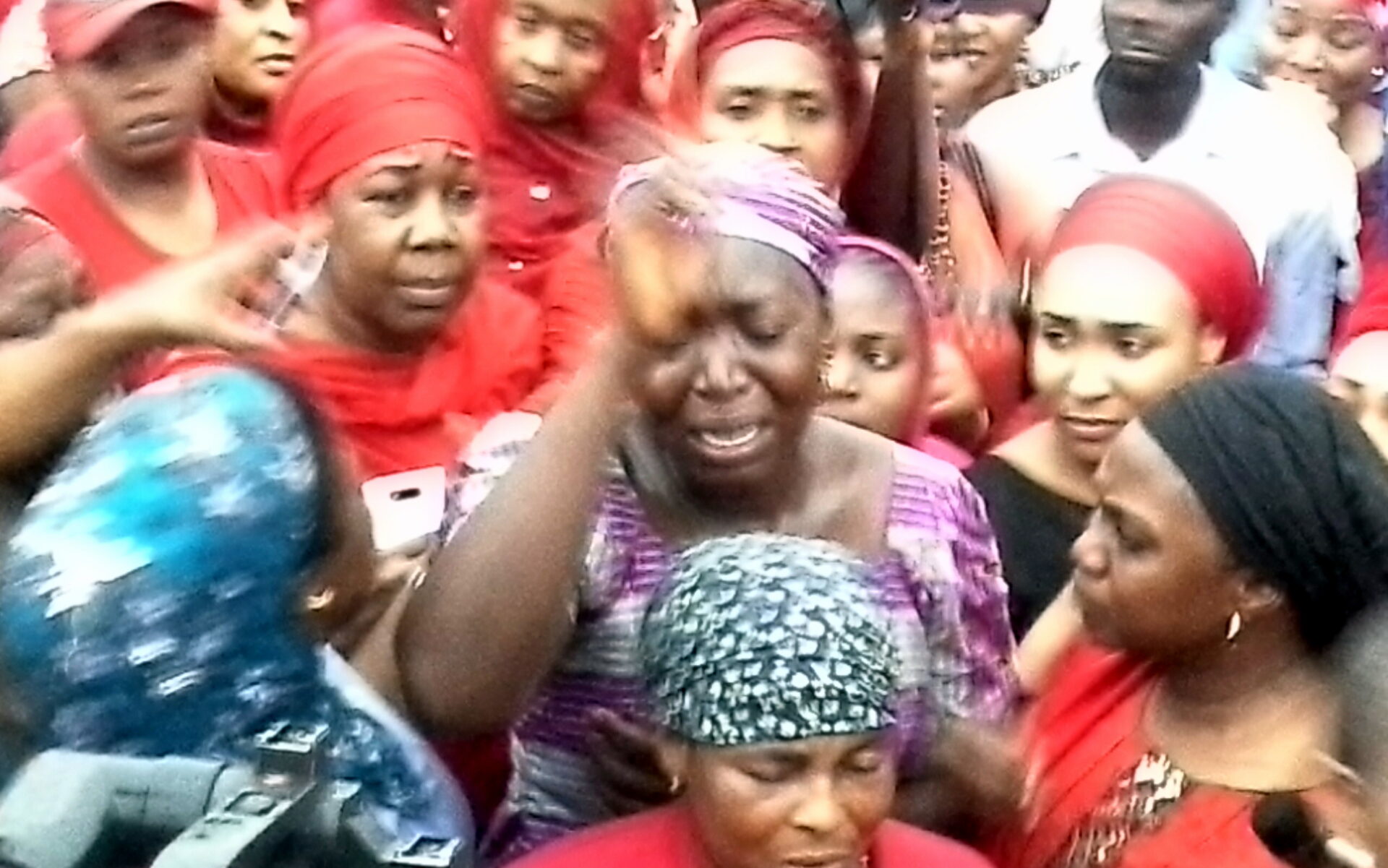By Soji Bamidele and Kristin Palitza
Manasse Allen says he is running out of patience. Two of his nieces are among the kidnapped group of teenagers that became known worldwide as “the Chibok girls.”
On August 27, it will be exactly 500 days since Islamist terrorist group Boko Haram abducted more than 200 girls from their school dormitory in the town of Chibok in Nigeria’s north-eastern Borno State.
But despite military searches and international lobbying, no trace of the teenagers has been found.
“It really is a very painful experience. It’s traumatic,” says Allen, standing in front of the Unity Fountain in Nigeria’s capital, Abuja, where the members of the BringBackOurGirls (BBOG) campaign – which was launched shortly after the abduction – meet weekly.
His bright red T-shirt reads “Never to be forgotten” in bold white lettering, one of the campaign slogans.
Like hundreds of other family members of the Chibok girls, the 45-year-old veterinarian is desperately clinging to the hope that at least some of the girls may still be found alive, almost 17 months after their kidnapping.
 People demonstrate calling on the Nigerian government to rescue girls taken from a secondary school in Chibok region, in Abuja, Nigeria. File photo: Olamikan GbemigaAP
People demonstrate calling on the Nigerian government to rescue girls taken from a secondary school in Chibok region, in Abuja, Nigeria. File photo: Olamikan GbemigaAP“We never envisaged that our girls would still not be rescued 500 days after their abduction. We are extremely saddened,” says BBOG spokesman Sesugh Akuma, who is also part of the gathering at the Unity Fountain, located in close proximity to the Hilton Hotel, a meeting point for Nigeria’s political elite.
To mark the 500 days of the girls’ disappearance, the activists have organised numerous events this week, including Muslim and Christian prayer services at the fountain, a tree planting ceremony and a march through the capital.
United Nations Secretary General Ban Ki-moon, who visited Africa’s biggest economy this week, also pledged his continued support, calling the abductions “intolerable” and demanding once again the release of the girls.
The lives of the families affected by the kidnappings have been placed on hold since the fateful night of April 14, 2013.
In the town of Chibok, 14 parents, whose daughters were kidnapped, died since the incident, a representative of the Chibok parents association, Yakubu Maina, tells dpa.
“Most of them died due to heart-related diseases and trauma,” according to Maina.
“We cannot afford to move on without positive closure on this monumental tragedy,” BBOG co-ordinators Oby Ezekwesili and Hadiza Bala Usman said in a statement.
“We find their continued captivity extremely disturbing.”
Disappointed by the previous government of Goodluck Jonathan, who did not act for more than two weeks after the abductions became known, the campaigners say they have placed their hopes on newly elected President Muhammadu Buhari to find the missing children.
The former military leader was elected in March, partially due to his promise to stop Boko Haram, which seeks to establish a state with its very strict interpretation of Islamic law and has killed an estimated 14 000 people since 2009.
“We cannot claim to have defeated Boko Haram without rescuing the Chibok girls and all other innocent persons held hostage by insurgents. This government will do all it can to rescue them alive,” Buhari had pledged during his inauguration in May.
But the more time passes, the smaller the chances of finding the teenagers – and of finding them alive.
The BBOG campaigners continue to meet at the Unity Fountain every Thursday afternoon to keep the campaign alive, but even for them it’s hard to keep up the optimism.
“Taking several elements into consideration, the botched ceasefire agreement with the insurgents some time ago, the character of [Boko Haram leader Abubakar] Shekau and several realities on the ground.
we shouldn’t have hope that these girls will still be alive,” admits Bukola Shonibare, one of the campaign leaders.
Meanwhile, Boko Haram continues to abduct women and girls.
Thousands have been captured in past years and in some cases raped, forcibly married, trained to fight and made to participate in armed attacks, sometimes on their own towns and villages, according to human rights group Amnesty International.


